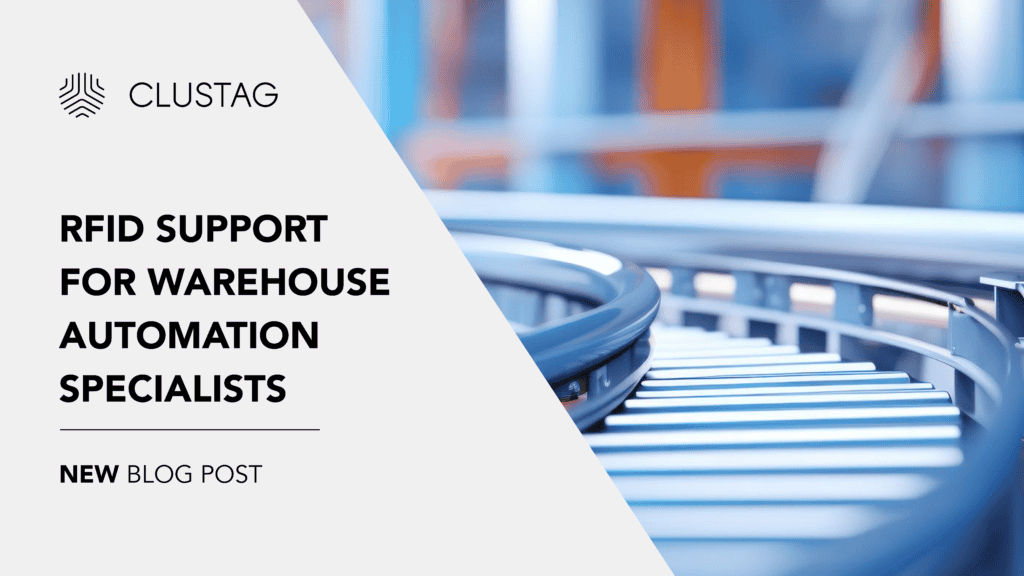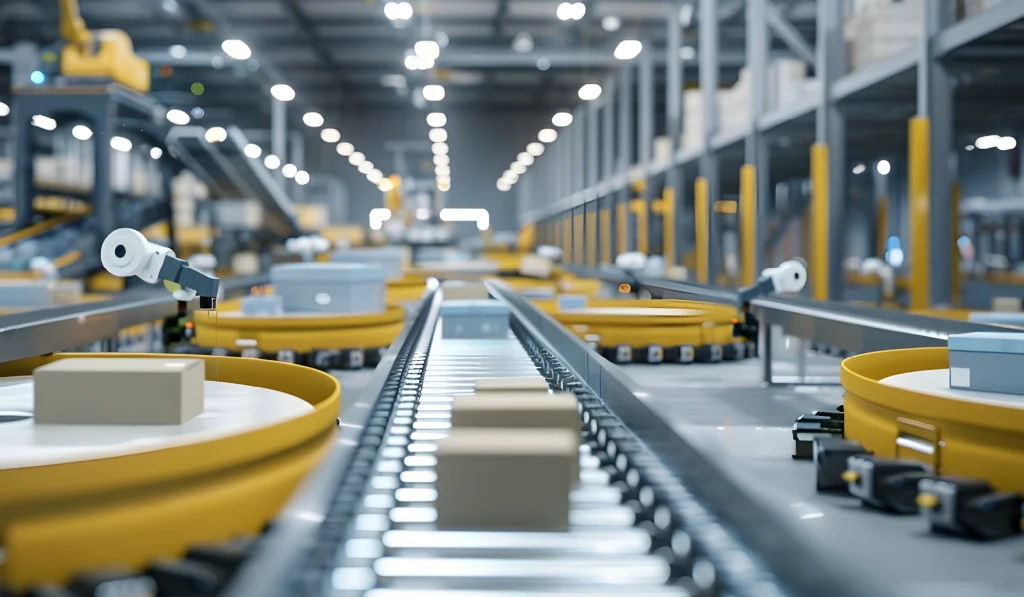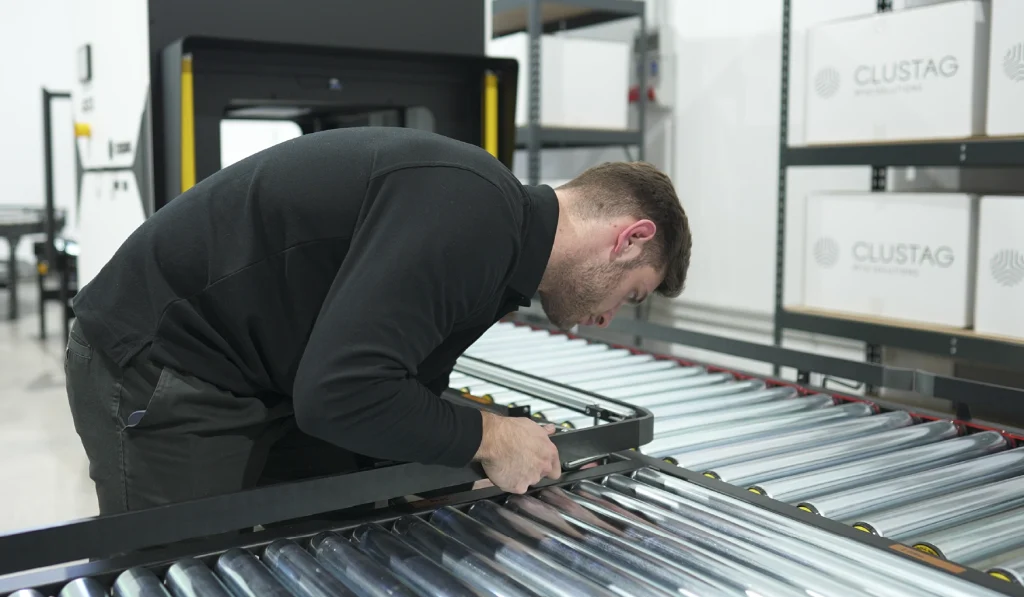
Warehouse automation specialists are often the unsung heroes that string together the various components making up the retail supply chain. While these businesses play an important role in helping to optimise supply chain efficiency and drive return on investment (ROI) for their customers, an effective deployment is rarely completed alone. In order for them to drive maximum value for their customers, warehouse automation specialists must be able to understand how the right partner can assist them in technology system integration.
In a world where technology’s influence on business operations is only increasing, RFID intralogistics solutions are being utilised by global companies to increase productivity and efficiency in their warehouses.
The technology can positively impact supply chains in a number of ways, but it also has the potential to hinder certain processes if not implemented and maintained correctly. The right partner, with a deep knowledge and understanding of a chosen solution, can accurately guide and support warehouse automation specialists and their customers to increase efficiency and deliver long-lasting ROI
The Importance of Warehouse Automation
Organisation within warehouses is important in ensuring that inventory is received, stored and managed effectively, and that all products are efficiently distributed to their next location. To achieve this, brands must have complete, accurate visibility over all items that enter and leave a warehouse, in real-time. This allows businesses to optimise their stock – minimising costs for transport and storage, while reducing waste levels caused by products that are left unaccounted for.
This entire procedure, undertaken manually, can be extremely time-consuming, prone to human error and difficult to manage without the right technology in place. However, retailers are realising the importance of driving efficiency within warehouses through technology. According to Statista the current warehouse automation market size sits at 23.44 billion US dollars, with that figure set to almost double by 2027.

Choosing the right RFID technology for warehouse automation
One significant challenge that warehouse automation specialists face today lies in helping their clients achieve inventory visibility throughout the supply chain. High-quality visibility of products allows brands to better track their stock in real-time across all locations. From here, they can improve decision making around manufacture, transport and storage to streamline operations and minimise cost. With Clustag’s patented RFID MOT Station, warehouse automation specialists can provide automation to their clients’ day-to-day practices that delivers fast return on investment (ROI).
The RFID MOT Station scans over 1,200 boxes per hour with 99.92%* accuracy. Gaining accurate visibility of contents across the entire supply chain also limits shrink, which works to minimise costs while maximising sales opportunities. By having visibility over required stock, available stock and sellable stock, brands can avoid excess inventory and optimise the manufacturing and transportation of products. Using RFID tunnel technology, monitoring and analysing data becomes easier, meaning businesses are able to better limit shrink. Ultimately, the technology helps users achieve rapid results that deliver long-term efficiencies and ROI.
In order to drive sustainable business success, retailers shouldn’t view technology adoption as a one time purchase. As the industry evolves, so too will its solutions, and it is important that organisations continue to evolve their technology in order to continually maximise their performance.This is where warehouse integration specialists have the opportunity to develop long-term relationships with their customers. However, in order to achieve this, they must first partner with a technology provider that can help future-proof their clients’ solutions.
The right partner understands what system integrators need and what solutions will suit their evolving needs best. Choosing the right partners allows system integrators to integrate the right technology and simplify the deployment phase for their clients. Their unique experience and expertise also ensure that they can assist with any problems that may arise.
At Clustag, we provide a 5-step process for all our customers, to ensure integration is deployed with maximum impact.
Stage 1 – Engineering Design: We design all-in-one intralogistic RFID solutions, bespoke to each individual customer and their specific requirements, to optimise warehouse receiving and shipment operations.
Stage 2 – Manufacturing and Assembly: We manufacture and configure RFID devices offering maximum quality and versatility to each project.
Stage 3 – Solution Integration: Our Zentup software – highly compatible with a wide range of hardware and software systems integrators with leading ERP, WMS and traceability platforms to ensure rapid and reliable technology deployment.
Stage 4 – On-Site Installation and Go Live: We seamlessly integrate its technology with customer material handling equipment. This includes electrical and mechanical integrations, controls commissioning and User Acceptance Training (UAT) on-premise.
Stage 5 – After-Sales Support: We provide regular maintenance on all integrations, delivering high-quality service throughout the product lifecycle on behalf of its partners. This includes…
- Active support services: Providing a 24/7 personalised response to customers
- Technical driven services: Proactive engineering maintenance
- Outcome driven services: Regularly optimises and updates customer performance
- Results-drive partnership: global and regular support to deploy best-in-class services

RFID Support: Get In Touch with Clustag
Trust is an important factor that every client seeks, especially when technologies are incorporated into operations. Get in touch with our team today to see how we can offer system integrators high quality support based on your unique requirements.
*Results obtained from mass testing for products labelled according to Auburn University’s international standards, and for items composed of non-conflicting materials for RFID environments.